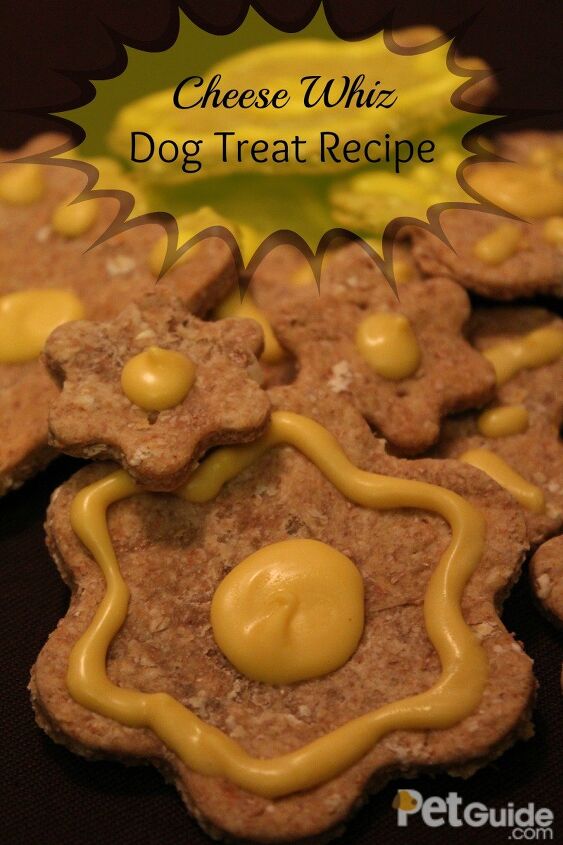
When it comes to cheese, dogs just can’t get enough. Satisfy those cravings with the Cheese Whiz Dog Treat Recipe.
What is it about cheese that makes dogs go crazy? I mean, I like cheese as much as the next person, but I don’t stop what I’m doing and frantically run into the kitchen when I hear someone pull it out and unwrap it. Oscar has a serious cheese addiction (the first step is admitting you have a problem, Oscar) and occasionally, I like to indulge it. That’s the idea behind the Cheese Whiz Dog Treat Recipe. I combine Cheddar and Parmesan cheese to make an ultra-cheesy treat that sends Oscar into a drooling stupor. The only problem? Getting him away from the oven long enough to pull the treats out safely (and in one piece!).

Makes 25 medium-sized cookies
While there is no denying the fact that most dogs get excited about the taste of cheese, the health benefits offered by this tasty treat may have you excited too! After all, who doesn’t love being able to feed something to your dog easily that can also improve their health and well-being?
Cheese is rich in calcium, protein, zinc, phosphorus, vitamin A, B-complex vitamins, and essential fatty acids. Of course, it also contains high fat content. For this reason, you should limit how much cheese you’re giving your dog and how regularly he’s enjoying this tasty treat.
Omega-3 fatty acids are a buzzword in dog nutrition as of late, but for good reason! With anti-inflammatory properties, these beneficial fatty acids are a go-to solution for relieving joint pain from arthritis while also helping to prevent joint problems in the future. It can also boost the immune system, support heart and kidney health, improve the condition of your dog’s skin and coat, and reduce conditions like depression, anxiety, and hyperactivity. If you have a young puppy that is still growing, omega-3 fatty acids play an important role in brain development.
Some other health benefits offered by the vitamins and minerals found in cheese include supporting vision and eye health, preventing night blindness and degradation of your dog’s eyesight with age, and encouraging strong bones and teeth.
To break down the lactose in dairy products like cheese, the body uses the enzyme lactase. Unfortunately, this is an enzyme that many dogs lack. The presence of lactase in a dog’s intestinal tract also decreases with age, making it easier for puppies to digest dairy than senior dogs. Pay careful attention to your dog’s reaction to dairy products and restrict lactose-containing treats, if needed.














